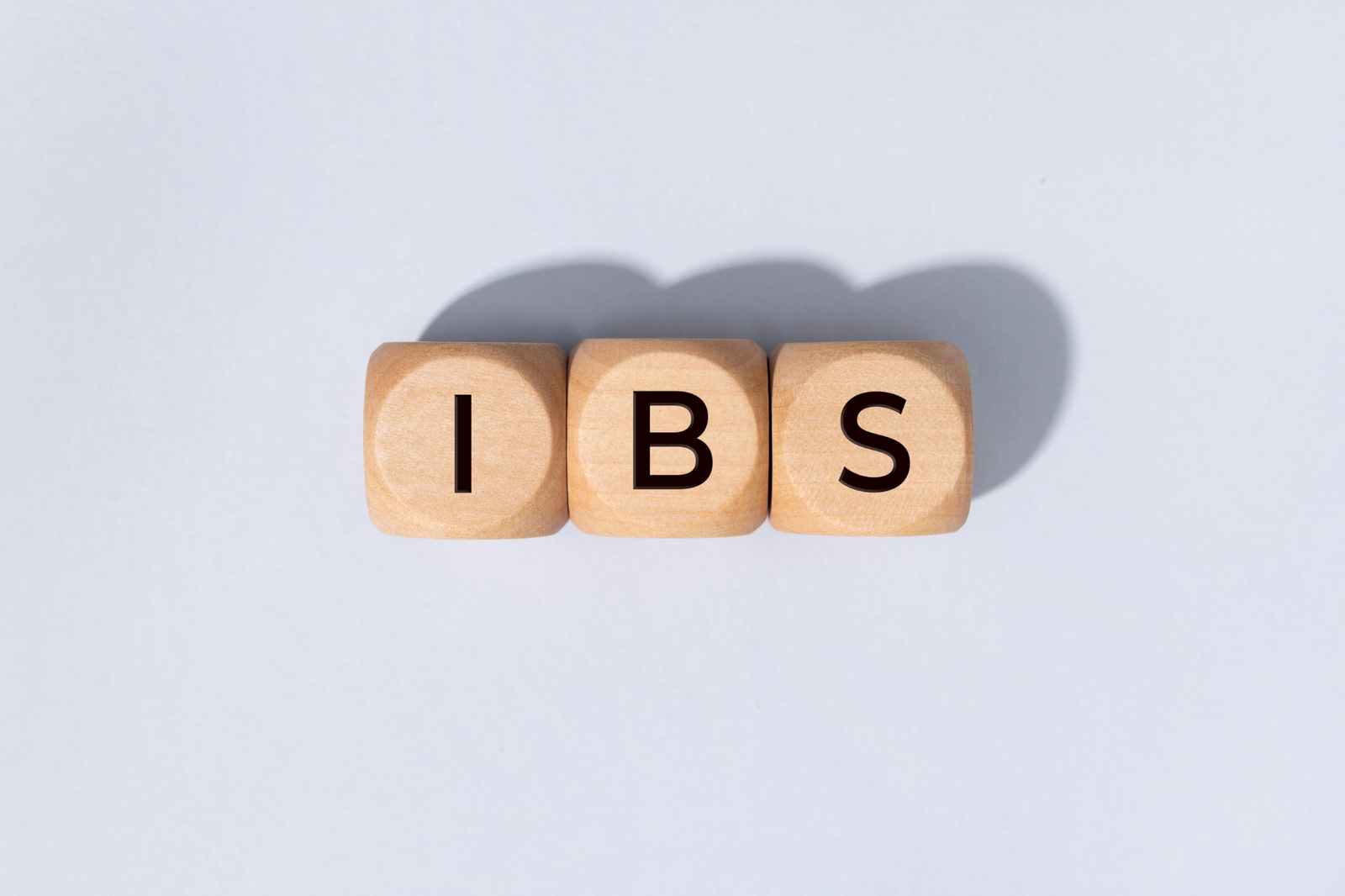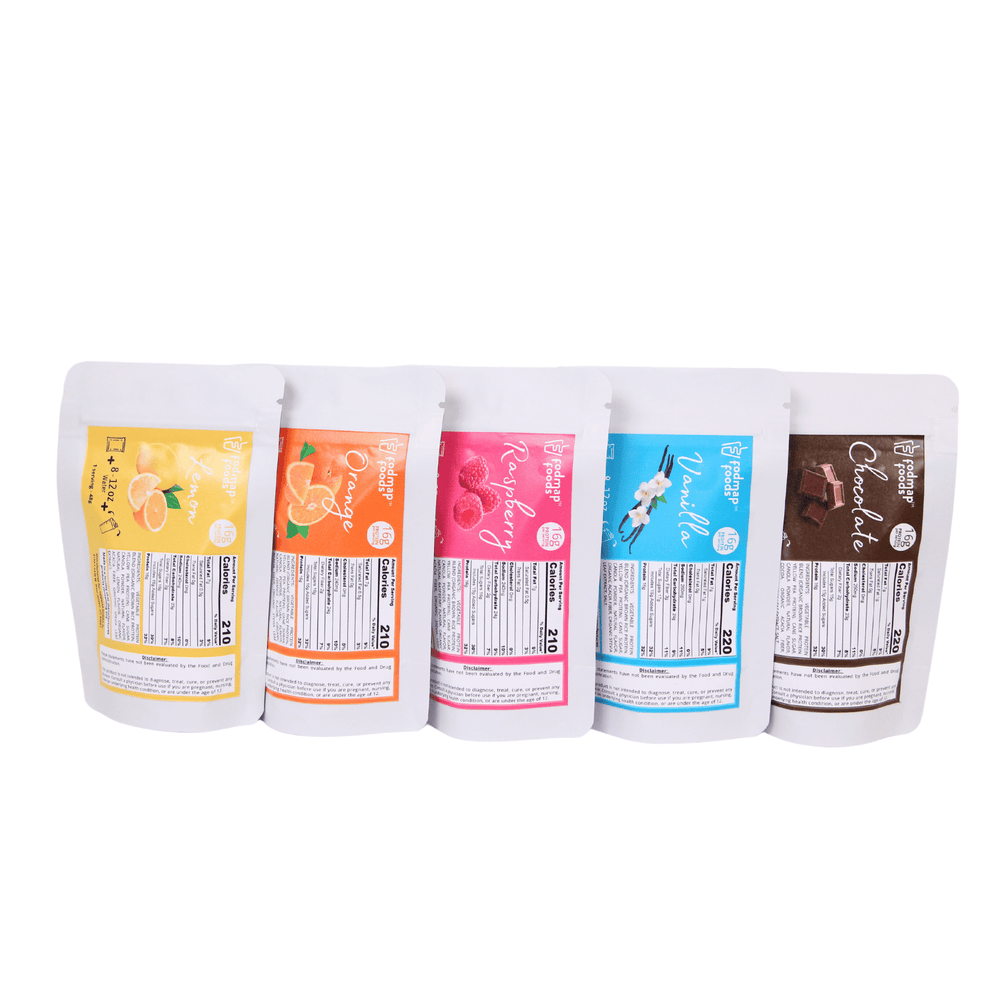What is IBS?

What is Irritable Bowel Syndrome?
IBS or irritable bowel syndrome is a syndrome made up of a group of symptoms related to the digestive tract. It is a medical condition affecting up to 10% of Americans. Symptom IBS include
- Abdominal bloating
- Abdominal cramping
- Diarrhea, constipation, or a mix of both.
- Changes in stool texture and shape
- Changes in stool frequency
Unfortunately, there is no single cause of IBS. Multiple factors cause stomach symptoms and it is individual for everyone. It is multifactorial or has many causes and is different for everyone. Diagnosing IBS typically involves ruling out other medical conditions that could cause similar symptoms. If you suspect you may have IBS or are experiencing gastrointestinal issues, it's crucial to consult a healthcare professional for proper evaluation and management.
Here is a list of causes that have been identified;
High FODMAP foods
F.O.D.M.A.P. is an acronym that stands for; Fermentable oligosaccharides, disaccharides, monosaccharides, and Polyols. These are types of sugars that ferment when you eat them rather than digest them. This fermentation is the same kind of reaction that happens in beer or bread production, it causes gas in the intestines. This increased gas causes cramping and bloating in the belly. Foods that have these sugars such as lactose, gluten, onions, and beans can make abdominal pain worse. These foods among many others are considered to be high FODMAP foods. Don't worry if you have these high FODMAP foods in your diet because there are low FODMAP alternatives that you can eat in their place.
Gastrointestinal Motility
The intestines work by contracting in sequence to move food along the tract. Similar to squeezing toothpaste from the end to the opening. People with IBS may experience abnormal contractions of the intestinal muscles. Like squeezing the toothpaste tube from both ends at the same time. This may lead to rapid movement or disorganized, slow movement through the intestines. Which may lead to diarrhea or to constipation.
Gut Microbiome
The gastrointestinal tract is made up of the mouth, stomach small intestines, and large intestine (also called the colon). This tract for eating, digesting, and eliminating waste is inhabited by millions of bacteria. These bacteria make up a complex ecosystem that affects how food digests and hormone signaling in the body. When there is a change in the balance of the bacteria or dysbiosis gut health changes for the worse. This dysbiosis is thought to contribute to symptoms of IBS. The dysbiosis can be regulated in numerous ways including; an elimination diet, antibiotics, and changing your base line diet.
Infections
Infections in the gastrointestinal tract and potentially other infections, have been linked to the development of IBS in some cases. There may also be some component of antibiotic use with bacterial infections that may contribute. That said, antibiotics are frequently lifesaving and should not be withheld without proper medical judgment. These infections can also be thought of as a dysbiosis
Stress and psychological factors
Everyone has stress and anxiety in their life at some point. The "gut brain" connection is very deep. Have you ever heard the expression "butterflies in your stomach"? This is an example of the gut-brain connection. Oftentimes just being worried about a situation can have increased gastrointestinal motility, cramping, or other dysfunction. This is not the only case of IBS, however there is a strong correlation.
Family history
While not conclusive, there is likely a familial component to IBS. Familial diseases oftentimes may be from "nurture" or the way were are raised. This includes the way we are taught to cope with stress, perceive the world around us, or potentially how we eat. Though it could also be "nature" or our genetics that cause IBS. Something that we can not control. Think of this like your hair color, this is genetically controlled, it is not based on what you eat or your living environment. In reality the real answer is that it is a combination of both and vary between people. As is there for many diseases.
Hormonal changes
Fluctuations in hormone levels, particularly in women during menstruation, may influence IBS symptoms. There is still much to be discovered in this area in medicine.
Future research
There is a lot of research going into finding the solution. Monash University, in Australia, is one of the leading resources for IBS. They have an amazing app that can guide you through the FODMAP diet and teach you which foods are safe and which you should avoid. There are also numerous other blogs and dietitians that can help teach more.
Our Goal
Here at FODMAP Foods, we are making things simple for you. You don't have to wonder if our meal shakes are FODMAP safe, because they are. Our meal shakes are FODMAP safe, and can be mixed with water for a quick snack or meal substitiion that will be comfortable for your stomach. Whether you have lactose, gluten, or other sensitivity, we are passionate about making your meal decisions easier.








Leave a comment